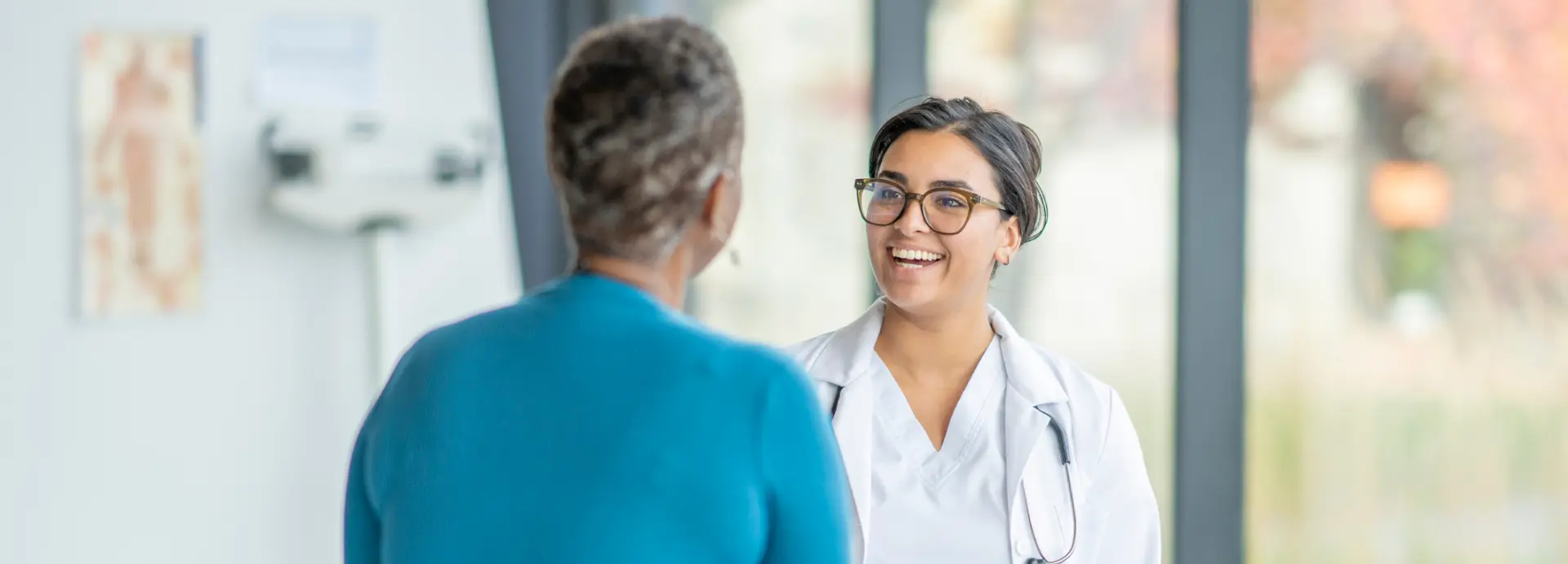Joint pain and orthopedic injuries don’t have to limit your mobility and quality of life. At Allure Medical, we offer regenerative stem cell therapy to reduce inflammation, promote healing, and get you back to doing the activities you love.
With a thorough consultation, customized treatment plan, and advanced procedures, we aim to improve joint function and delay or avoid invasive surgeries.
Unlock a Pain-Free Future – Schedule Your Stem Cell Consultation Today
Stem Cell Therapy in Orthopedics
Stem cell therapy utilizes stem cells to treat diseases, injuries, and degenerative conditions. In orthopedics, stem cells can differentiate into bone, cartilage, muscle, and other tissues needed to repair damaged areas. Stem cells are obtained from bone marrow or fat tissue, then separated and injected into the affected joint or tissue.
This regenerative therapy reduces pain and inflammation while stimulating the growth of new, healthy tissue. It shows promise for treating musculoskeletal injuries, osteoarthritis, and reducing the need for joint replacement surgeries. Stem cell therapy offers a cutting-edge alternative to traditional orthopedic treatments.
At Allure Medical, our goal is to harness the natural healing properties of your own stem cells to resolve orthopedic issues and improve mobility. With a research-backed consultation and treatment process, we aim to get you back to full function while avoiding riskier surgical interventions when possible.
The Unique Benefits of Stem Cell Therapy for Joint and Orthopedic Conditions
Stem cell therapy provides unique advantages for treating joint and orthopedic conditions:
- Reduces pain and inflammation associated with arthritis and injuries
- Stimulates cartilage growth unlike traditional treatments
- Avoids invasive surgical procedures in many cases
- Utilizes the patient’s own stem cells for customized therapy
- Promotes regeneration and healing of damaged tissues
- Provides an alternative when other options have failed
- May delay or eliminate the need for joint replacement
- Gets patients back to activity faster than surgery
- Offers a cutting-edge, research-backed treatment method
Choose a Non-Surgical Path to Healing – Learn More About Our Stem Cell Treatments!
Types of Stem Cells Used in Joint and Orthopedic Treatments
Stem cells can become many different specialized cell types. The main types used for orthopedic conditions are:
Mesenchymal Stem Cells (MSCs)
These stem cells are found in bone marrow, fat tissue, and other tissues like the umbilical cord. MSCs are capable of becoming bone, cartilage, muscle, fat, and other connective tissue cells. They are one of the most commonly used stem cells for treating orthopedic injuries, arthritis, and degenerative joint diseases. MSCs can be isolated from a patient’s own bone marrow or fat tissue, expanded in cell cultures, and then injected back into the damaged joint to encourage healing.
Hematopoietic Stem Cells
Found in bone marrow and umbilical cord blood, hematopoietic stem cells can differentiate into all types of blood and immune system cells. Hematopoietic stem cell transplants have been used for decades to treat blood cancers and disorders. More recently, they have been approved by the FDA for some orthopedic therapies to modulate immune activity and inflammation.
Embryonic Stem Cells
These stem cells are derived from human embryos and have the ability to become any cell type in the body. While they have tremendous potential for regenerative medicine, embryonic stem cells are not currently used in orthopedic treatments due to regulatory, ethical, and safety concerns.
Induced Pluripotent Stem Cells (iPSCs)
These can be created by reprogramming adult cells, such as skin cells, back into a stem cell-like state. iPSCs can then be differentiated into specialized cells like bone, cartilage and muscle. This provides a potential source of stem cells from a patient’s own tissues that may avoid immune rejection. iPSCs are still being researched for orthopedic applications.
Skin Stem Cells
Stem cells found within skin tissue have shown promise for improving wound healing and skin regeneration. They are sometimes used in treatments for severe burns to help regenerate healthy skin tissue. Ongoing research is examining their potential for orthopedic applications such as improving healing after surgeries.
We use MSCs derived from your own bone marrow or fat tissue for customized injections right into damaged joints or tissues. These cells stimulate regeneration specific to your condition.
How Stem Cells Repair and Regenerate Joint and Orthopedic Tissues
Stem cells promote repair and regeneration through their unique properties:
| 1 | They differentiate into specialized cells like cartilage, providing building blocks for tissue repair. |
| 2 | Tissue engineering techniques use stem cells to aid cartilage repair. |
| 3 | Fat-derived MSCs help fix musculoskeletal trauma and regenerate tissues. |
| 4 | Bone marrow MSCs enhance bone regeneration at orthopedic injury sites. |
| 6 | Implants with osteogenic cells may stimulate local stem cells to regenerate discs or other tissues. |
| 7 | Stem cells are applied directly to knee cartilage defects to stimulate regrowth. |
| 8 | The injections incite your body’s own healing response to fix injured joints. |
Joint and Orthopedic Conditions Treated By Stem Cell Therapy
Stem cell therapy shows promise for:
- Knee problems – cartilage damage, osteoarthritis, meniscal tears
- Hip arthritis and injuries
- Shoulder arthritis, rotator cuff tears
- Ankle arthritis and tendonitis
- Spine conditions – herniated discs, arthritis
- Elbow tendonitis – tennis or golfer’s elbow
- Hand and wrist arthritis like rheumatoid arthritis
- Foot and ankle arthritis – bunions, plantar fasciitis
The key is finding patients who may benefit from regenerative therapy rather than immediately opting for surgery. Stem cells promote healing in mild, moderate, and severe cases of joint degeneration and injuries.
Reclaim Your Active Lifestyle – Find Out if You’re a Candidate for Stem Cell Therapy!
The Stem Cell Treatment Process
Our consultations identify the best stem cell treatment method for your needs. The process may include:
- Harvesting stem cells from your bone marrow or fat tissue through a minimally invasive procedure. This is done under local anesthesia.
- Isolating and concentrating your stem cells in an FDA-regulated lab.
- Injecting the stem cells into damaged joints like the knee, shoulder, or ankles using imaging guidance.
- Providing cell treatments tailored to your unique orthopedic condition based on the location, severity and your goals.
- Using precise injection methods to maximize stem cell integration and healing.
- Employing platelet-rich plasma (PRP) therapy to further stimulate the healing process.
- Conducting follow-up appointments to monitor your progress. Additional treatments may be advised for optimal results.
Our regenerative specialists customize your stem cell protocol every step of the way for your needs.
Who is an Ideal Candidate for Stem Cell Therapy?
Good candidates for stem cell therapy often have:
- Mild to moderate arthritis or degenerative joint disease
- Partial cartilage defects or early osteoarthritis
- Injuries like rotator cuff tears not requiring immediate surgery
- Tendonitis or ligament sprains unresolved with other treatments
- Disc herniations, spinal arthritis, or back pain
- Activity-limiting orthopedic conditions but otherwise in good health
The key factor is having a condition that may respond better to regenerative treatments than jumping right to surgery. Our consultations determine if you are eligible.
Initial Consultation
Your first appointment with our stem cell therapy experts is a comprehensive evaluation to determine if stem cell treatment is right for you.
During the initial 60-90 minute consultation, our specialists will:
- Do an in-depth review of your health history, including any previous injuries, chronic illnesses, surgeries, or treatments. We want a full picture of your health.
- Discuss the details of your current injury, condition or symptoms. When did they start, what makes them better or worse, how they impact your daily activities, etc.
- Perform a thorough physical exam related to your condition, assessing your mobility, range of motion, pain levels, muscular strength, and other relevant functional abilities.
- Explain how stem cell therapy works, including the types of stem cells and their benefits, the procedures involved, expected timelines, and realistic outcomes you can hope to achieve. We want you to understand the treatment process and goals.
- Answer any questions you have about stem cell therapy safety, effectiveness, procedures, recovery time, costs, etc. No concerns should go unaddressed.
- Review your treatment options and make an expert recommendation on whether stem cell therapy is likely to help in your specific case. We’ll give you our honest opinion.
- Provide information on costs associated with therapy and discuss payment options if you decide to move forward. We aim to make treatment affordable.
To get the most out of your consultation, make sure to:
- Gather relevant medical records, test results, imaging studies, notes from other doctors, and anything else that gives insight into your condition.
- Note your current symptoms, what functional limitations or disability you have, and any pain levels. This helps us understand your issues.
- Make a list of questions and concerns to discuss. The more information you want, the better.
- Talk about your goals and expectations for therapy, so we can advise you on realistic outcomes.
- We want you to feel informed and confident about stem cell treatment before proceeding. Our consultations are comprehensive so you can decide if it’s the right option for your needs. Please ask us anything!
Take the First Step Towards Recovery – Book Your Comprehensive Consultation Today!
Potential Side Effects or Risks
As with any procedure, potential risks exist but are minimized through strict protocols. These may include:
- Joint pain or stiffness for a few days after injections
- Temporary inflammation as the healing process starts
- Rare infections or reactions to injection components
- Lack of significant symptomatic improvement in some cases
You will be monitored for any side effects and provided proper medical care if needed. Our regenerative specialists discuss all potential risks and optimize procedures for your safety.
We believe regenerative cell therapy provides a less risky approach over surgery when patients are properly screened. With close monitoring and transparent informed consent, we aim to maximize your safety and optimal outcome.
Schedule Your Appointment Today!
Our team is here to answer your questions on how stem cell therapy may help your orthopedic condition. Reach out to Allure Medical today to see if this innovative treatment is right for you!
Call +18772558734 or request an appointment online to schedule your initial consultation. We will review your information and help determine an appropriate treatment plan for your needs.
New patients should complete our new patient forms in advance so we can better understand your health history and goals. Please bring any relevant diagnostic test results, medical records, or imaging to your visit as well.
We look forward to speaking with you and exploring regenerative therapy options to help you be active and pain-free again soon!




